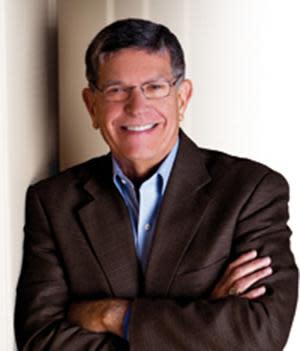Where the people say ya’ll

I am currently reading a legal thriller that is set in Charleston, South Carolina. The writer tries to speak southern, but it is clear he is not from "around here." He uses ya’ll in the singular, referring to a single person as ya’ll. Ya’ll is short for you all, meaning all of you.
My brother, Greg, a CPA, spent most of his working career as a successful mutual fund wholesaler. He traveled the Carolinas visiting financial advisers and explaining the merits of his company’s investment funds. He enjoys telling a story about meeting two senior managers from Boston at the Columbia, South Carolina, airport and driving them to a Shoney’s restaurant in the nearby town of Cayce. These important Ivy League graduates told Greg he was mispronouncing the name of the town, calling it “Casey,” like Casey Stengel, when the proper pronunciation was “Case” as in a case of Chateau Latour.
Once they were seated in the restaurant, a thin, older waitress walked over and asked what they wanted to drink.
Greg said, “Ma’am, before we order, could you tell my Yankee friends how to pronounce the place we are in?”
“Why, sure, honey,” she said. She leaned over the table and looked seriously at the two big shots and said, “Ya’ll may say it different up north, but down here we pronounce it Shoney’s.”
As Charlotte has grown, the communities surrounding the city have changed, but if you drive a little west or south of here, putting some distance between the influences of other cultures, accents, and perspectives, you will understand how and why our country is so deeply divided.
In smaller, rural communities, neighbors are generally from "around here." They are high school classmates or cousins or people who work together at the plant. They are less likely to play golf at country clubs and more likely to enjoy hunting and fishing.
They think soccer is silly and boring. They prefer the sports they enjoyed as children, like football and baseball. They do not do Sunday brunches or read national newspapers. They gather at grandmother’s house after church on Sundays for fried chicken and horseshoes in the side yard.
They do not sit on brick patios sipping mixed drinks as their children play in elaborate pools. If there is a pool, it is above ground, and they jump in with the kids and splash around like wounded ducks or float on tubes and drink beer.
They sit on front porches and wave at neighbors and talk to one another about their troubles and opportunities. They know the words to the Pledge of Allegiance; can sing the national anthem and do; and they proudly fly the American flag from their homes and in their yards.
Some politicians denigrate "these people." They call them deplorable or say they are "semi-fascist," but they are wrong. They do not know them, nor do they know what motivates them to vote and support their choices in political candidates. If they did, they would know that ‘these people’ are the backbone of America. It is they who make America great.
In a Forbes article by Chuck DeVore titled, “States That Defend Us — Where Do Our Military Volunteers Call Home?” DeVore says, “there are stark regional differences in the makeup of our military, with the South contributing more than its fair share of personnel and the Northeast largely lagging, with a few exceptions. Looking at each state’s share of recruits by the number of 18-to-24-year-olds in the state determines how well or how poorly a state is doing compared to its recruitable population.
By that measure, the top five states in 2016 were: Hawaii, South Carolina, Georgia, Virginia, and Florida.”
Except for Hawaii, these are the states where the people say ya’ll. It is one "aloha" and four "ya’lls."
There is a profound difference between small towns and big cities. To understand this, watch a documentary titled, “Seattle is Dying.” It is a few years old, but no less relevant now than when it was produced. Here a journalist explains how the policies of big city leaders have led to the decline of a once-great city.
Play these policies across the country and you get Chicago where nearly 800 people will be murdered this year; St. Louis, one of the most dangerous cities in America; and New Orleans where the murder rate is 44 of 100,000 population, one of the worst in the country.
People own guns where the people say ya’ll. But they don’t kill one another. They protect their homes and live peacefully with their neighbors. Presidents and senators and left-wing politicians may call them "semi-facist," but they are wrong. These are the people who love America. They get up every morning and go to work; they give their money and time for the benefit of the disadvantaged; they go to church and follow the Golden Rule.
Presidents and politicians are sometimes wrong. They most certainly are wrong when they say the people who say ya’ll are not honorable Americans. I know this because I am one of them. I personally resent these insults. Better was a time when we respected one another and worked together to make America great. That’s what I intend to do. I hope ya’ll will join me.
Michael K. McMahan is a resident of Gastonia.
This article originally appeared on The Gaston Gazette: People in the South love America even if others call them semi-fascist
